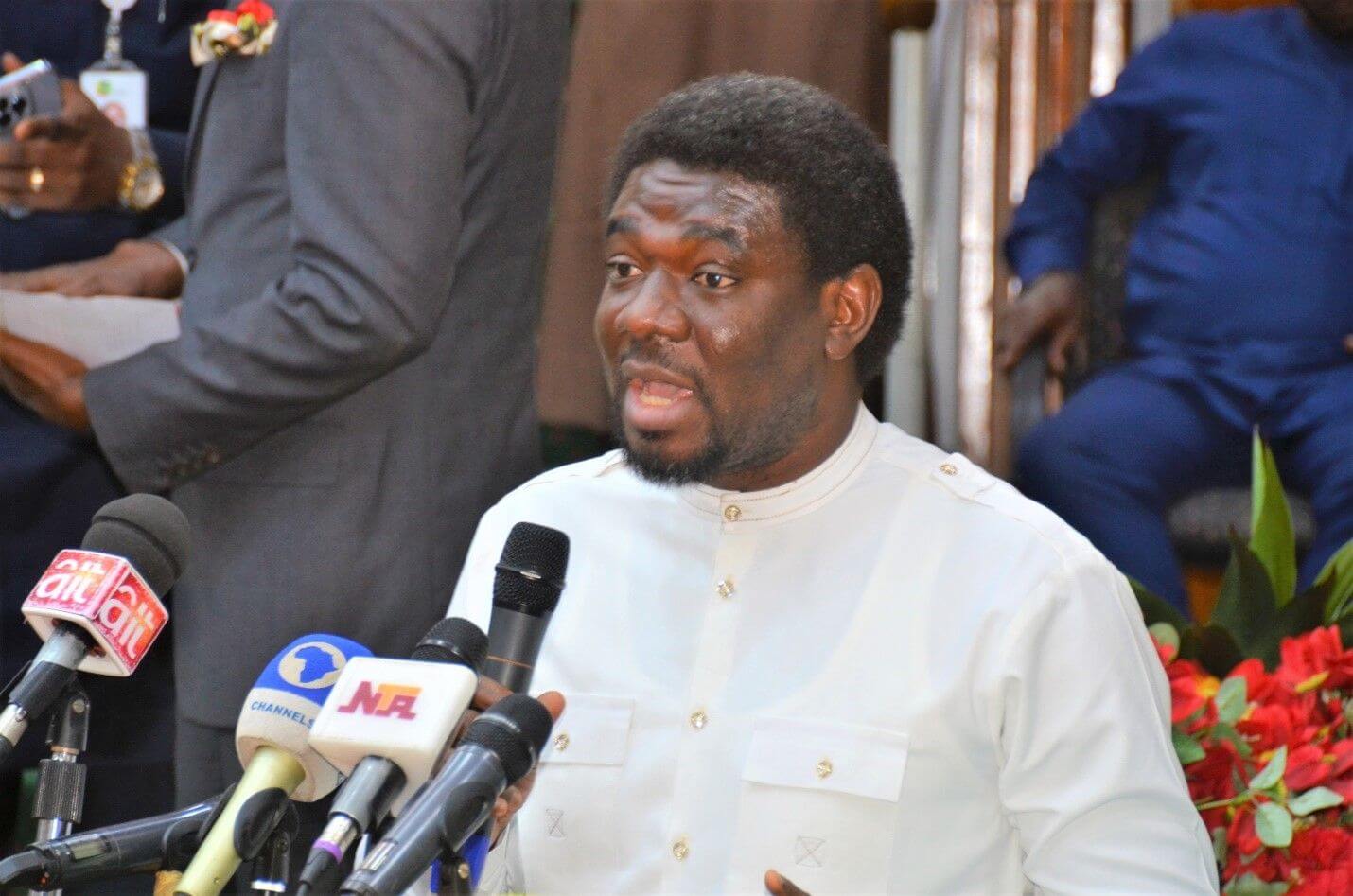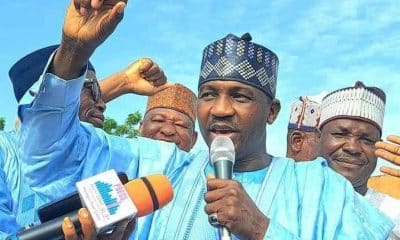Nigeria News
Some States Are Not Implementing New Minimum Wage Properly, But No Plans For National Strike – TUC President

The President of the Trade Union Congress (TUC), Festus Osifo, has lamented that some state governments are not implementing the consequential adjustments on the new minimum wage as it should be done.
He explained that the action of such governments is shortchanging workers in the state.
According to Osifo, the consequential adjustment is supposed to come with a certain percentage increase for workers, but many state governments don’t follow the rule and only add a fixed amount across the board to the minimum wage.
The TUC president made the submission on Monday during an interview with Arise News.
He, however, said despite the situation, the labour union has no plan to declare a nationwide strike as it concerns the implementation of the new ₦70,000 minimum wage as many states have complied, and those yet to fully comply are in negotiation with labour unions in their respective states.
Osifo said, “When we did- from ₦30,000 minimum wage to ₦70,000, when you calculate it, you are going to realise that the percentage is about 133 per cent. So, what that means is that normally, that 133 per cent should be applied probably to people from grade level 2 to somewhere around grade level 7 or 8, you apply the 133 per cent.
“Then as you now progress, you can be reducing the percentage gradually. So, what that means is that a graduate, before now, who used to earn-let’s say N120,000 on grade level 8, maybe step 2, that person that was earning ₦120,000, if you apply the proper consequential adjustment, the earning of that person is going to be more than ₦200,000.
“But what some states are doing, instead of applying that percentage, what they do is that they add a fixed sum. So, what those states do, they will just come, they will tell you that they are going to add ₦20,000 across board, that is not how consequential adjustment is done. It is actually without percentage, you now spread it out.”
“We have empowered all our state councils and we have also explained to them how these consequential adjustments can be done so that our workers will not be shortchanged.”
Explaining the challenges with the implementation of the consequential adjustments, the TUC president said the Congress is concerned about the overall implementation of the consequential adjustments.
He added that for a few states that are yet to do the needful on the payment of the new minimum wage, state unions have been directed tp mobilize for a strike.
“The greatest challenge that we have is actually the consequential adjustment, because a lot of these things, they are not doing the consequential adjustment properly. So, when we had the NEC meeting last week, we examined the issues state by state, and we realised that while a handful of states, they are already implementing, we have some states as well that conversations were currently going on.
“We have some states that they were just at the threshold- a state like Oyo, for example, they’ve constituted the committee, they have been meeting, and they are at the point of signing an agreement. So we have few states like that, that cohesion has gone on. But we still have some others- a state like Zamfara, a state Cross River, that they’ve not even commenced anything whatsoever. So, for such states, like last week for example, we had a warning strike in Cross River State for two days, you just heard that the strike was called off today.
“And so, for a state like Zamfara, we have also told our people to mobilise as well. So for those states that there is no conversation whatsoever, we’ve asked our people to mobilise and go on strike. But for the states that conversations are up to- between 80 and 90 per cent, we have asked them to quickly tidy up all loose ends so that they will start implementing the new minimum wage,” the TUC president said.
On the probability of a nationwide strike over the new minimum wage, Osifo said the union has no such plans as the level of compliance is high, and focus would just be on states yet to do the needful.
“We don’t really envisage a nationwide strike as at today because it is not really proper for you to go on strike in a state that is implementing the minimum wage. So, our concentration today is on those states that are not implementing the minimum wage. For us, the ones that have not started at all are about two or three. For others, because in our NEC meeting, what came out of it clearly was that majority of these states that have not implemented, that discussions are currently in advanced state, in fact, it was scored above 8- per cent, that conversations are going on,” he said.
Osifo also debunked suggestions that state governments that are yet to implement the new minimum wage may not be able to afford it. According to him, such state governments simply do not value their workers.
“No it is not true. It is actually because some of these governors or the state government, they don’t see workers’ welfare as priority. Because today, if you see what has happened, the proceeds of the devaluation of naira that has made much more naira available to the government that they share during FAAC allocations and all that, the money that has actually come into states has actually, in most cases, tripled. So, they can actually afford this, we know that very well,” the TUC president noted.






